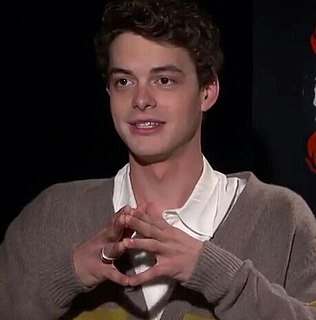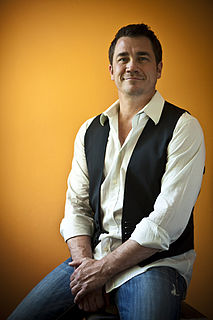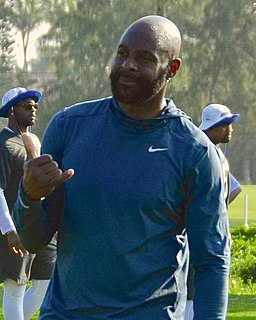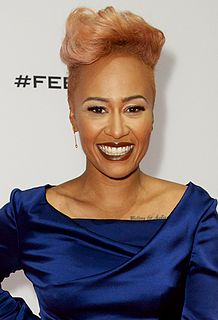A Quote by Israel Broussard
I feel like I can be myself in L.A. I feel like Mississippi is a little close-minded; not all of Mississippi is, but just the part that I came from. They really don't get outsiders.
Related Quotes
[My mother] tried so hard to make life easy for us. Those are the things that forced me to try to do something different and when this Movement came to Mississippi I still feel it is one of the greatest things that ever happened because only a person living in the State of Mississippi knows what it is like to suffer; knows what it is like to be hungry; knows what it is like to have no clothing to wear.
Gary is a old factory town right outside Chicago. From my standpoint, my family migrated there in the '50s and '60s from Mississippi - Sardis, Mississippi - shout out to Sardis, Mississippi. My family migrated there just like a lot of black families in that area: they migrated there to get jobs, to get those factory jobs, that steel mill job.
Coming from the South, I just felt you had to work just a little bit harder. It was not going to be handed to you. I’d get the letters from all the major schools but no one came out to talk to me face to face until this small, dominant black school, Mississippi State Valley University sent a coach out to me. I had a chance to talk to him and he said, ‘Hey Jerry, we’re going to be doing some great things at Mississippi Valley State University and we would love to have you there.’
I just don't feel that we've traveled very far in the realm of social equality. There just seems to be a little bit of unrest. And sometimes I think that happens when you really feel like something's about to change. Right before the moment of lift off, sometimes things feel a little bit unhinged, and that's what it feels like to me right now, both as a woman and just as a human on the planet as an American woman in America. I feel like we're on the precipice of change. I feel a little nervous.
People just like the thrill of anything. Dangerous things and dark things are exciting. Like as a kid, I knew I wasn't going to get killed if I went into the Haunted House but you kind of feel like you are. And when it comes out the track the other side, it's like, "we're still alive"! And I find it really funny when adults get really scared because I've not been really scared since I saw Jaws when I was a little kid. I just think people like the thrill of it, they like to feel like they accomplished something, that they survived the movie.
My father came from Germany. My mom came from Venezuela. My father's culturally German, but his father was Japanese. I was raised in New York and spent two years in Rio. My parents met at the University of Southern Mississippi, and they had me there, and then we moved to New York. I'm not very familiar with Mississippi.
I've known people that was a part of a family and always feel that the family liked everyone else but them. That hurts, and that's as deep a hurt as you can possibly get. I've known people that would have problems with their love life. This is kind of how blues began - out of feeling misused, mistreated. Feeling like they had nobody to turn to. Blues don't necessarily have to be sung by a person that came from Mississippi as I did, because there are people having problems all over the world.


































